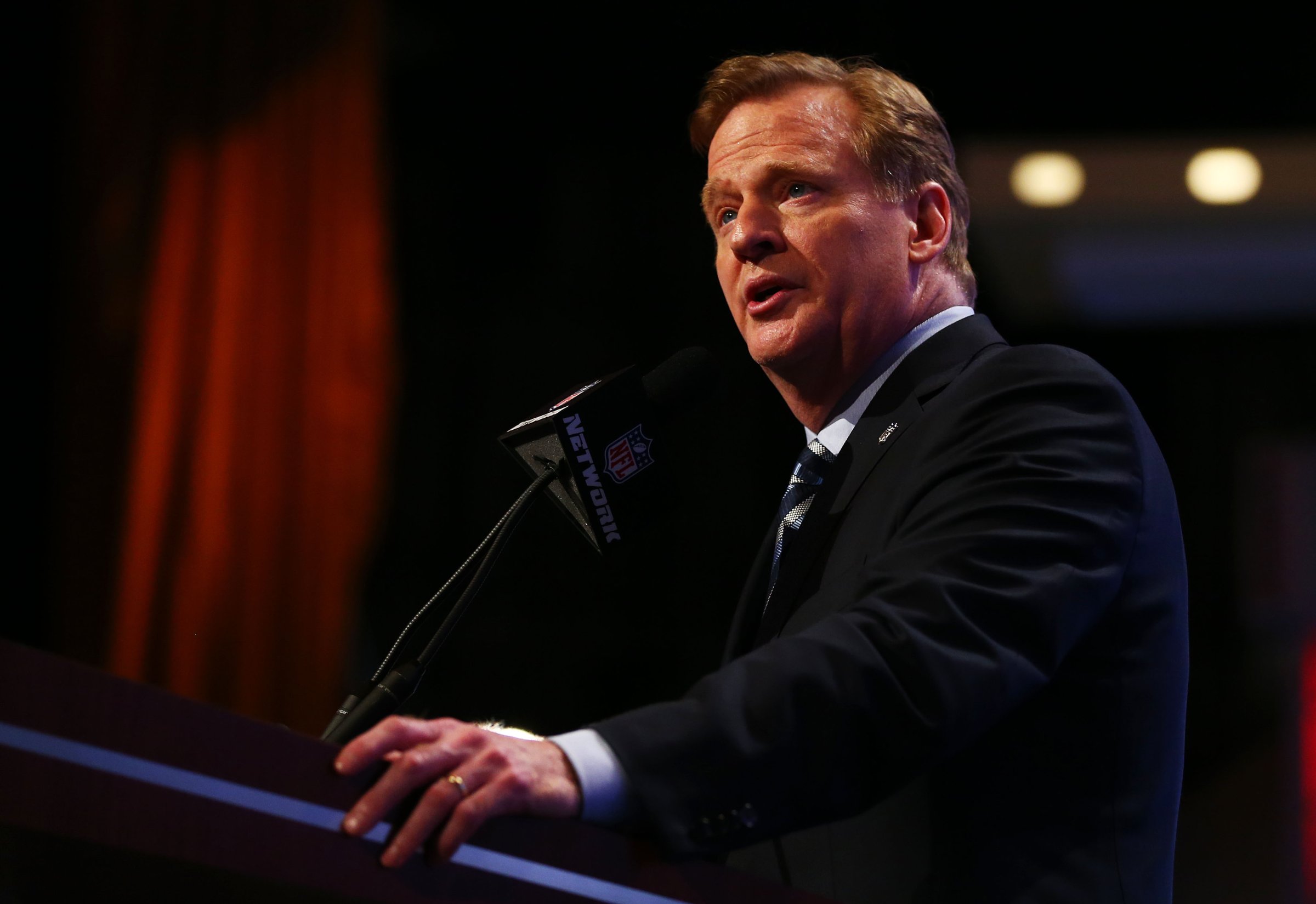
National Football League Commissioner Roger Goodell talks a lot about integrity. Do the wrong thing, PacMan Jones and Ben Roethlisberger and Sean Payton, and you will be sidelined.
So Goodell’s decision to issue a two-game suspension for Ray Rice — the Baltimore Ravens running back who was caught on film dragging his unconscious fiancé out of an Atlantic City elevator after an altercation — was particularly noxious. Especially in a league that hands down year-long suspensions for smoking marijuana, a recreational habit that is not only relatively innocuous, but legal in two states.
Goodell, in a league-wide memo circulated on Thursday, admitted that, in the Rice affair, “I didn’t get it right.” So he reversed course, and instituted a new policy that calls for much harsher punishment for players who assault women — even a potential lifetime ban for a repeat offender. But there’s no need to call Goodell’s move bold or stunning, or give him a standing ovation.
Because it was the easiest call of his career.
After all, if Goodell is going to preach integrity, correcting the indefensible is no act of courage. “The Ray Rice decision was offensive,” says Joan Meier, legal director of the Domestic Violence Legal Empowerment and Appeals Project, and law professor at the George Washington University Law School. Under the new policy, a player who assaults a woman will be suspended six games; the commissioner retains his right to add to that punishment if the incident includes “violence involving a weapon, choking, repeated striking, or when the act is committed against a pregnant woman or in the presence of a child.” A first-time NFL offender could receive a longer suspension if he had a prior domestic violence incident before entering the league. The lifetime ban for the second offense does come with a caveat: a player may apply for reinstatement after a year, though “there will be no presumption or assurance that the petition will be granted.”
“This is the most positive action we’ve seen by the NFL and Mr. Goodell,” says Ruth Glenn, interim executive director for the National Coalition Against Domestic Violence. “My gut reaction was one of real hope – for the first time in a long time, the NFL seems serious about trying to fight domestic violence”
One fear, says Meier, is that harsher penalties could deter victims from reporting abuse. “If a victim is financially dependent on the abuser, and his livelihood is completely taken away, she could suffer harm,” says Meier. So Meier is cheering the NFL’s willingness to give second offenders a chance to re-enter the league after a year. “That’s enough time for the perpetrator to really get his act together,” says Meier. “If the penalties are too draconian, you risk punishing the victim.”
On paper, the NFL’s intentions seem noble. But penalties alone won’t solve the problem. The league must prove this is more than a PR move. “Good for the NFL, and good for Mr. Goodell,” says Glenn. “But we’ll be watching. This can’t just be a policy. Players have to be responsible, and their teammates and coaches have to come forward if they witness any abuse, or just know something’s going on. The entire culture has to change.”
More Must-Reads From TIME
- The 100 Most Influential People of 2024
- Coco Gauff Is Playing for Herself Now
- Scenes From Pro-Palestinian Encampments Across U.S. Universities
- 6 Compliments That Land Every Time
- If You're Dating Right Now , You're Brave: Column
- The AI That Could Heal a Divided Internet
- Fallout Is a Brilliant Model for the Future of Video Game Adaptations
- Want Weekly Recs on What to Watch, Read, and More? Sign Up for Worth Your Time
Write to Sean Gregory at sean.gregory@time.com